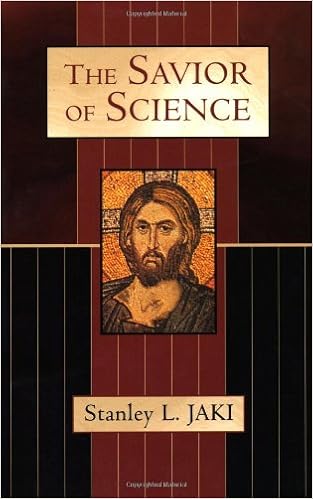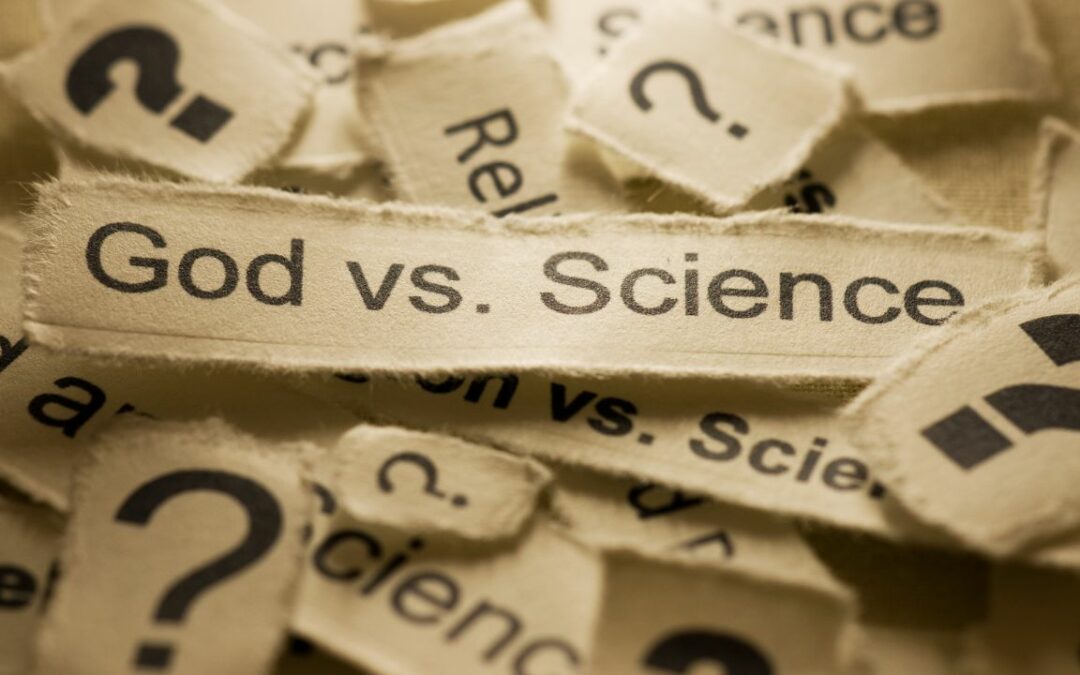Faith, Reason, and Science: A Reading List
Does the Catholic Church oppose science? Are religion and science incompatible? Is the Church anti-science?
Contradictions and Misunderstandings: The Catholic Church and Science
Knowing our Lord’s desire to gather all people together in His fold, it is always sad when someone leaves the Church. A Catholic who abandons the Church has come to a point where, for whatever reason, they no longer find the claims of the Church credible. People leave for a variety of reasons. Among young people, however, surveys have repeatedly revealed concerns about science taking center stage. Some struggle to understand how the Christian view of the special creation of mankind fits with evolution; others struggle with the very concept of the supernatural. If we are to believe the polling, ill-perceived incompatibility between science and religion is so prevalent as to be the defining reason why most young Catholics lose faith (source).
This is truly unfortunate, as the alleged contradiction between faith and science is based on a series of misunderstandings about the different purposes and methodologies of science and religion, the nature of faith vs. knowledge, and the history of the Catholic Church’s relation to science. The secular world often pushes a narrative that religion is “outdated” and “unscientific” in an attempt to discredit religious belief. A young person who uncritically accepts this messaging inevitably comes away thinking that faith is hostile to a scientific worldview.
The Need for Clarification
As parents and stewards of the faith, it is incumbent upon us to help our children learn to appreciate the complementarity of faith & science. This should be part of our children’s homeschooling education and their faith education as Catholics. They need to understand the different types of knowledge that science and religion work towards and their varying methodologies. Certainly, they need to be educated about the Church’s vast historical contributions to the development of science. God is the source of all truth, whether religious or scientific. Ultimately, if all truth comes from the same source, scientific truth and religious truth cannot be in conflict. Students should be introduced to the beautiful harmony of truth we see when we study faith and science as two different but valid ways of coming to understand the world and its creator.
To that end, here is a recommended reading list of seven books on the subjects of faith and science. As an FYI, most of these books are written for adults but can be digested by high school students or advanced readers. I also include Homeschool Connections’ online courses that address this issue at the end.
Faith and Reason Reading List
Faith, Science, and Reason by Christopher T. Baglow
 Christopher Baglow’s Faith, Science and Reason: Theology on the Cutting Edge is a textbook specially designed for Catholic high schools and homeschools. It is primarily a theology textbook incorporating scientific principles to help students “rediscover faith on the frontiers of science.” This book admirably weaves science and religion together, proposing a new way of considering the relationship between the two in a much more complimentary way than the standard “science vs. religion” fare we get from the secular world. This is a very upper-level reading, and it is probably suitable for senior-year studies.
Christopher Baglow’s Faith, Science and Reason: Theology on the Cutting Edge is a textbook specially designed for Catholic high schools and homeschools. It is primarily a theology textbook incorporating scientific principles to help students “rediscover faith on the frontiers of science.” This book admirably weaves science and religion together, proposing a new way of considering the relationship between the two in a much more complimentary way than the standard “science vs. religion” fare we get from the secular world. This is a very upper-level reading, and it is probably suitable for senior-year studies.
The Genesis of Science by James Hannam
 James Hammam’s The Genesis of Science is a historical book about the development of science during the Christian Middle Ages. Hannam systematically dismantled the conventional wisdom of the Middle Ages as a time of intellectual stagnation, demonstrating instead the boundless scientific curiosity of medieval Christians. Hannam demonstrates that the entire edifice of modern science could only exist because of the foundations laid in the Christian Middle Ages. He considers a variety of disciplines, showing that behind each was some Christian thinker motivated in his work by a desire to understand nature’s God. This book is more accessible to a general audience and could be read by any enterprising high schooler.
James Hammam’s The Genesis of Science is a historical book about the development of science during the Christian Middle Ages. Hannam systematically dismantled the conventional wisdom of the Middle Ages as a time of intellectual stagnation, demonstrating instead the boundless scientific curiosity of medieval Christians. Hannam demonstrates that the entire edifice of modern science could only exist because of the foundations laid in the Christian Middle Ages. He considers a variety of disciplines, showing that behind each was some Christian thinker motivated in his work by a desire to understand nature’s God. This book is more accessible to a general audience and could be read by any enterprising high schooler.
Faith and Reason: Philosophers Explain Their Turn to Catholicism, edited by Brian Besong, Jonathan Fuqua
I n this unique book, Brian Besong and Jonathan Fuqua take a different approach to the question of science and religion by interviewing twelve philosophers who converted to Catholicism. These philosophers—all highly educated and deeply thoughtful individuals—share their personal journeys to the Catholic Church through the path of knowledge. Though each philosopher has their own very unique human story as to how they came to the Church, they all saw in the scientific order of the natural world an incentive to faith. This book is engaging and accessible to most high school-level readers.
n this unique book, Brian Besong and Jonathan Fuqua take a different approach to the question of science and religion by interviewing twelve philosophers who converted to Catholicism. These philosophers—all highly educated and deeply thoughtful individuals—share their personal journeys to the Catholic Church through the path of knowledge. Though each philosopher has their own very unique human story as to how they came to the Church, they all saw in the scientific order of the natural world an incentive to faith. This book is engaging and accessible to most high school-level readers.
The Savior of Science by Stanley Jaki, OSB
 Fr. Stanley Jaki (1924-2009) was a Hungarian Catholic priest who won international accolades as a philosopher and physicist (he held a PhD in physics and was a distinguished professor at Seton Hall University). Jaki wrote many books about Christianity and science over the course of his life. The Savior of Science is a fascinating work that demonstrates the unique place of the person of Jesus Christ in the development of Western science. Fr. Jaki argues that Christological theology created a firm foundation for science in the Christian West that had eluded the pre-Christian pagans. Fr. Jaki’s books are beautifully written but also packed with detail. Probably better for seniors or advanced readers.
Fr. Stanley Jaki (1924-2009) was a Hungarian Catholic priest who won international accolades as a philosopher and physicist (he held a PhD in physics and was a distinguished professor at Seton Hall University). Jaki wrote many books about Christianity and science over the course of his life. The Savior of Science is a fascinating work that demonstrates the unique place of the person of Jesus Christ in the development of Western science. Fr. Jaki argues that Christological theology created a firm foundation for science in the Christian West that had eluded the pre-Christian pagans. Fr. Jaki’s books are beautifully written but also packed with detail. Probably better for seniors or advanced readers.
The Wonder of the World by Roy Abraham Varghese
 Like other authors we have reviewed here, Roy Abraham Varghese’s The Wonder of the World attempts to demonstrate the harmony between scientific knowledge and theological truth. Varghese’s work is unique in that, rather than starting from lofty philosophical principles, he begins with our everyday experiences of things like language, consciousness, and reproduction to help us see that the world is nothing less than a wonderland revealing God’s order. One of the charming things about this book is that it is structured as a dialogue, making it quite a delight to read and accessible to high school students.
Like other authors we have reviewed here, Roy Abraham Varghese’s The Wonder of the World attempts to demonstrate the harmony between scientific knowledge and theological truth. Varghese’s work is unique in that, rather than starting from lofty philosophical principles, he begins with our everyday experiences of things like language, consciousness, and reproduction to help us see that the world is nothing less than a wonderland revealing God’s order. One of the charming things about this book is that it is structured as a dialogue, making it quite a delight to read and accessible to high school students.
By Design: Science and the Search for God by Larry Whitlam
 Larry Whitlam’s By Design: Science and the Search for God discusses the dialogue between science and religion in the context of the Intelligent Design movement. Intelligent Design is a scientific movement that highlights instances of design within nature, which they say points to an intelligent “designer” behind our cosmos. The book introduces some of the most important personalities in the Intelligent Design movement and explains how their theories challenge conventional godless origin theories. This book is a great read, but it might be a bit advanced for any but the best readers, as most books dealing with Intelligent Design are highly technical.
Larry Whitlam’s By Design: Science and the Search for God discusses the dialogue between science and religion in the context of the Intelligent Design movement. Intelligent Design is a scientific movement that highlights instances of design within nature, which they say points to an intelligent “designer” behind our cosmos. The book introduces some of the most important personalities in the Intelligent Design movement and explains how their theories challenge conventional godless origin theories. This book is a great read, but it might be a bit advanced for any but the best readers, as most books dealing with Intelligent Design are highly technical.
Not By Chance! Shattering the Modern Theory of Evolution by Lee M. Spetner
 This 2006 book by physicist Dr. Lee M. Spetner offers a thorough scientific critique of Darwinian evolution that leading scientists and philosophers have praised as one of the weightiest and most coherent challenges to Darwinism of the 21st century. Spetner does not dispute the theory of evolution itself but rather appeals to biology and physics to argue that random—that is, unguided—evolution is an impossibility. If species developed, they developed according to a guided plan. The book covers complex mathematical, statistical, and biological data, but Dr. Spetner has a gift for presenting this information in an understandable way to the average layman. Probably a good book for junior or senior level.
This 2006 book by physicist Dr. Lee M. Spetner offers a thorough scientific critique of Darwinian evolution that leading scientists and philosophers have praised as one of the weightiest and most coherent challenges to Darwinism of the 21st century. Spetner does not dispute the theory of evolution itself but rather appeals to biology and physics to argue that random—that is, unguided—evolution is an impossibility. If species developed, they developed according to a guided plan. The book covers complex mathematical, statistical, and biological data, but Dr. Spetner has a gift for presenting this information in an understandable way to the average layman. Probably a good book for junior or senior level.
These are but just a sampling. There really are so many great books out there that tackle scientific and religious questions head-on! It was difficult whittling this list down to seven. What would you add to this list? Leave your recommendations in the comments. Now for that list of online courses…
Catholic Homeschool Online Courses
Homeschool Connections offers a full slate of science courses for grades 6 to 12, covering astronomy, biology, chemistry, physics, and more. All courses are academically challenging, designed to inspire a love of science, and taught within the framework of the Catholic Church, which recognizes God as the author of science.
The following courses deal specifically with the topic of Faith and Science…
The Relationship of Science and Theology: A Study of Evolution, taught by Inshal Chenet
High School Theistic Apologetics: Are Science and Religion Enemies? (Defending Your Faith Series) taught by Gary Michuta.
Homeschooling Saints Podcast
Homeschooling Saints Podcast has a couple of great episodes on the topic of Faith and Science:
- Scientists Who Became Believers with Father Robert Spitzer
- Science Increasingly Points to God with the Director of the Vatican Observatory, Brother Guy Consolmagno, SJ
If you’d like to continue this discussion, I invite you to join me and other Catholic homeschooling parents at our Homeschool Connections Community or our Facebook group.






